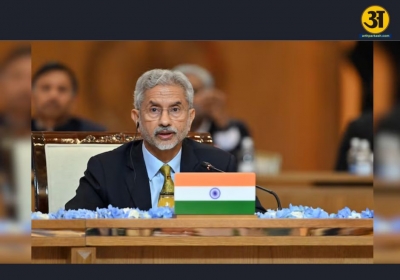
China's move to weaponize space domain is bringing new challenges
China's move to weaponize space domain is bringing new challenges Airforce chief
China's recent moves have weaponized the space domain, according to Indian Air Force Chief Air Chief Marshal V R Chaudhari, who also stated that the terrestrial, space, and aerial domains are losing their "individual identities," and that the spectrum now includes small drones to hypersonic ballistic missiles.
In the future, space-based assets may be required for the conduct of operations in a networked situation, according to the Air Chief Marshal.
"China's latest demonstration of physically moving one of its disabled satellites into graveyard orbit is bringing in newer threats in the race to weaponize the space domain, a domain hitherto considered relatively safe," Chaudhari said at the Jumbo Majumdar International Seminar on the Future Challenges of Aerospace Power.
"We're looking at a spectrum of weapons that ranges from kinetic to non-kinetic, lethal to non-lethal, and small drones to hypersonic ballistic missiles." Future military forces will face substantial challenges as a result of this large and ever-changing continuum."
Chaudhari explained that hypersonic missiles are "fired from the surface of the planet, fly through the atmosphere into space, and returns to a target on the earth with velocities significantly higher than any land or aircraft platform," as China demonstrated last year. Similarly, if space-based assets become hubs for commanding terrestrial, underwater, and aerial combat, they will become gravitational targets for an adversary."
"Armed forces all around the globe have realised that the air force should be in charge of this broad continuity," he said.
Drones and tiny aerial vehicles, as well as their growth, "will represent a substantial challenge for traditional air space control," he warned, adding that "manned and unmanned combat systems will be teaming in the future."
"Space travel has already become a reality," he stated, adding that "exponential growth in the civil aviation sector, along with future improvements in terrestrial travel, will pose a significant difficulty in terms of air space control." "Before we get overtaken by technology," he warned, this "conundrum" should be solved.
While traditional land, sea, and air warfare would continue, "unconventional and hybrid measures to impair conventional capability will need to be addressed," he said.
According to Chaudhari, aviation's rise over the last century "has been unprecedented, revolutionising the character of combat," and air control "has become a precondition for the conduct of operations at all levels."
"Aerospace power continues to evolve and mutate, fueled principally by new technology, the appearance of new threats, and the evolution of new warfighting paradigms."
When it comes to future problems, he says the most important is keeping up with technology, because "no other field has undergone such a rapid revolution in technology as airpower has had in the last 120 years of its existence." "An additional difficulty is to build the competence for indigenous design, development, and manufacture of future capability," Chaudhari said, adding that the technology in this domain is "niche, proprietary, and often under strict state control."
"No single body will have the resources or the knowledge base to produce future battle-ready technology," he said, urging a "all-of-nation approach."
Also read : ISRO official: India is open to foreign establishing space infrastructure





